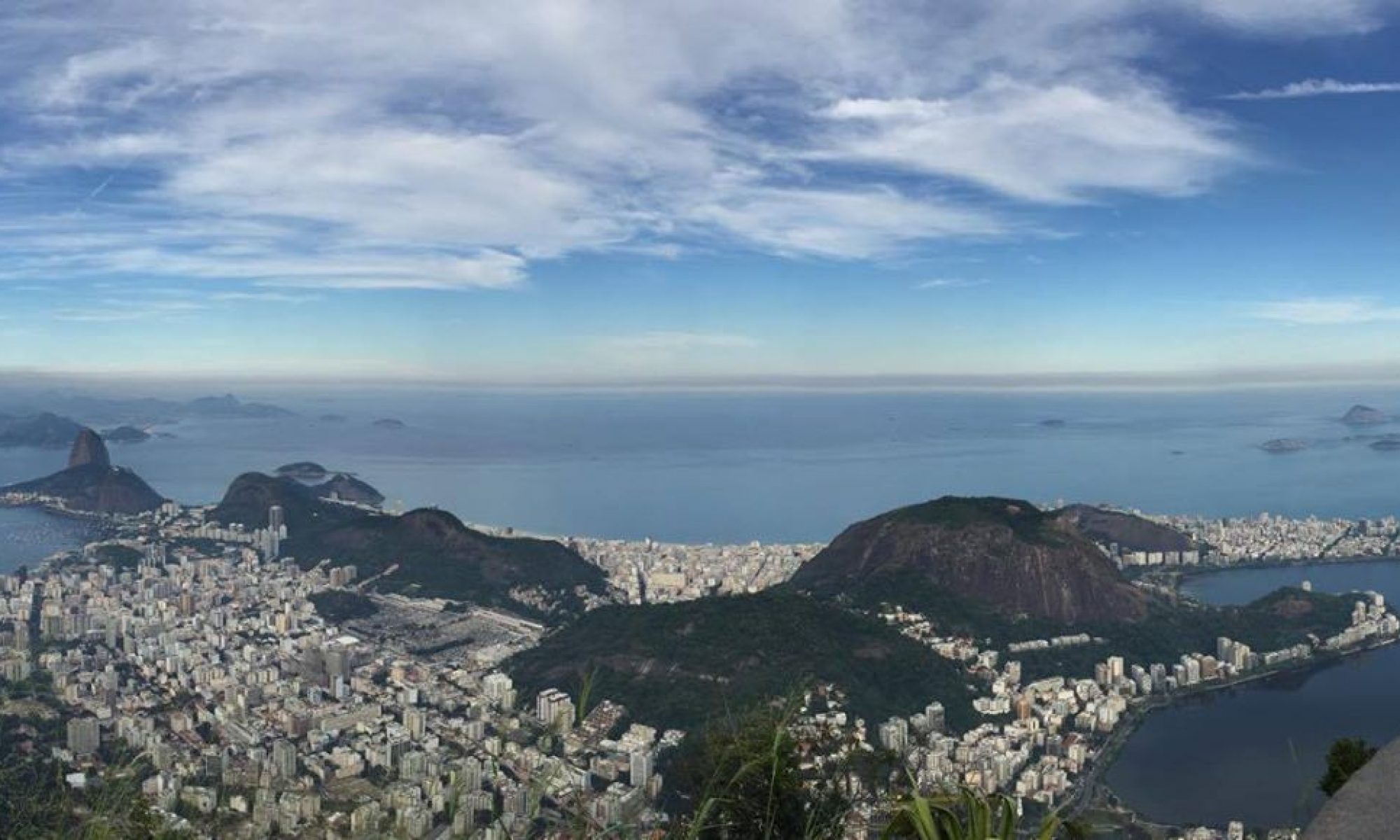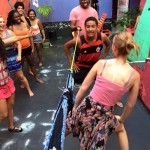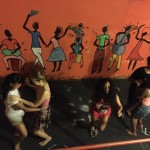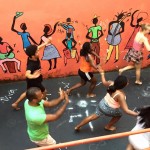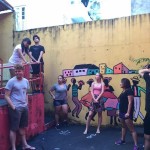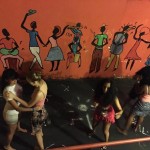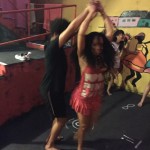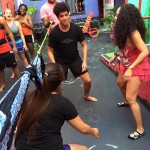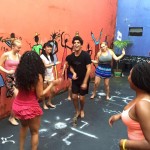June 22, 2015
By: Julie Foong
Today was another off-day graciously granted by our professors. Many caught up on sleep before lunch and a visit to the beach. We gathered once more in the evening for a samba class and then a group dinner along the restaurants near the beach. As the four weeks sink in, we are beginning to string the pieces together. Brazil has taught us a great deal and will continue to do so in our last week. The many life lessons will stay with us and contribute to the discussions we hope to bring back to Dickinson.
Personally, I have been thinking of dichotomies, where dualism and intersectionality exist and some times cannot be explained. For example, for one to know what it means to be happy, one has to also know what it means to be the opposite, to be sad. It is the whole chicken and egg circular reasoning. Just because there is not a conclusion to it, it doesn’t mean it doesn’t exist. In the context of Brazil, I have been contemplating the relationship between the system and people.
In my opinion, the system is the structure in society that influences social rules, both spoken and unspoken, while the people would refer to the population who abide by or challenge these rules. In essence, Brazil’s system includes its governance, physical environment, culture, religion, and so forth. Some of our lectures handled information on Brazil’s demographics, history, and education system, which are structures that authorities have put in place. Our other lectures included discussions about culture, religion, and non-governmental organizations (NGOs), which encompass people and their choice of activities around the system. Often times, the system works with the people and vice versa, but in other cases, the two can disagree on the approaches taken and that is an intersectionality that is unique because I think that is when consciousness is gained and action is put into place. According to my interpretation of Paulo Freire (2012), he explains consciousness through an awareness of one’s life circumstances and a desire to balance the scale when the system puts one group at a disadvantage for another to succeed.
In the example of education, the government have set affirmative action policies to provide opportunities for public school students who may not have the financial means to pursue higher education. As discussed in a previous post, these policies have both social and racial approaches to implementation. This would be a system that informs how people try to get an education. It is only in the past decade that this policy was explored. Despite its good intentions and early development, there are things that are not being accounted for. In our travels to various NGOs that focused on citizenship, scholastic and civil education, we have learned about the work that people have dedicated their lives to, in order to help raise the next generation of scholars. Often times, the public school system may attempt to give the population some sort of basic education, but the quality offered does not prepare students for higher education. It could be due to the funding issue, since private schools are able to prepare their students with better resources and facilities. Nonetheless, the organizations that welcomed us gave us a perspective to consider. Even if circumstances do not permit them to start strong, and if the students are willing to work harder to catch up with their peers, the organizations are more than willing to be that bridge to help them cross the river.
Unfortunately, in Brazil, the system often triumphs and sets many obstacles that limit the education that people pursue. Of the youth we encountered in the favelas/communities, it is likely that only a small handful will make it through high school. As for the students we met through the organizations, they had a certain fire in them to succeed. Their determination and their educators’ passion for the sharing of knowledge are few of the reminders that I wish to emulate in my own life. Our greatest weapon is to keep learning, because that enables us to practice an open mind as well as gain a sense of humanity. As we meet others to learn their stories, we are reminded that they too have their own struggles. In watching them push for better circumstances, I am humbled at the effort they consciously choose to invest into themselves. In that way, I am also reminded that I don’t know enough and can likewise pursue more knowledge about the world and people.
The world may be a complicated place as the dichotomies challenge each other, but with a sprinkle of positivity, passion, and energy, I hope that humanity gets reflected in each and every one of us as we push forward and conduct a ripple effect to make the world a more livable place. The system may be the rules that we live by, but we are our own agents and that should not stop us from pursuing other ideas and working towards continuous improvement, whether it be us as people, or us as influencers of the system.
–
Freire, Paulo. Pedagogy of the Oppressed. Ed. Donaldo Pereira Macedo. Trans. Myra Bergman Ramos. New York: Continuum, 2012. Print.
